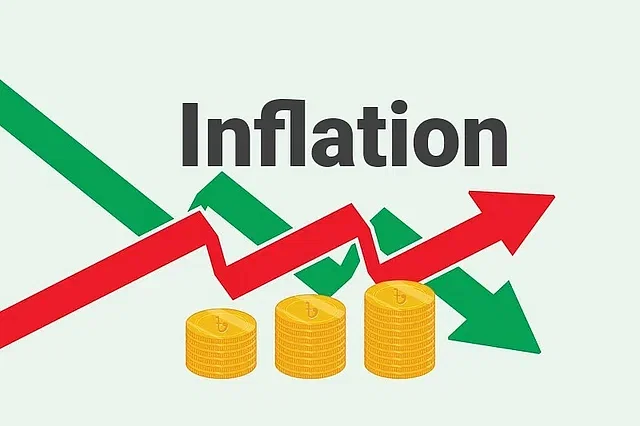‘Inflation may persist for another 12-18 months’

Staff Reporter :
Bangladesh’s inflation rate spiked to 10.87% in October, primarily driven by escalating food prices, according to data released Thursday by the Bangladesh Bureau of Statistics (BBS).
This marks the highest inflation rate in three months, up from 9.92% in September and 10.49% in August.
The surge in food prices is particularly notable, with food inflation reaching 12.66% in October, a significant jump from September’s 10.40%.
Key staples such as rice and vegetables have seen sharp price increases, putting additional pressure on low- and fixed-income households across the country.
Meanwhile, non-food prices increased by 9.34%, showing a slight decrease from the 9.5% recorded in September.
Bangladesh has been grappling with persistent inflation for nearly two years, with overall inflation remaining above 9% since March 2023.
The rising cost of living has especially impacted the country’s lower-income groups, who spend a larger portion of their income on food essentials.
As the inflation rate continues to climb, Bangladesh Bank Governor Ahsan H Mansur addressed the nation, urging patience in the face of rising costs.
Speaking at a press briefing on Thursday, Governor Mansur explained that the central bank’s recent monetary tightening measures, aimed at controlling inflation, would require between 12 to 18 months to produce tangible results.
The meeting was chaired by Finance Adviser Salehuddin Ahmed at the Finance Ministry.
“After tightening the monetary policy, it takes 12 to 18 months to bring down the inflation rate. So, we have to be patient,” Mansur stated, emphasizing the gradual nature of monetary policy effects.
The governor clarified that the central bank’s focus is on managing inflation, not on reducing the overall price level. “We manage inflation; we don’t aim to lower the price level itself.
No country seeks to reduce prices to avoid the risk of deflation,” he said.
Deflation-a persistent decline in prices-may initially appear beneficial as it increases purchasing power, but it can also stunt economic growth and is often associated with economic instability.
The continuous rise in food prices has exacerbated the financial strain on households, particularly for those with low or fixed incomes.
In recent months, consumers have faced elevated costs for essential goods, while wage growth has remained relatively stagnant.
Governor Mansur acknowledged these challenges, urging the public to stay patient as the central bank’s policy takes effect.
“This isn’t something that can be achieved in two to three months.
At best, we might see results in 12 months, but 18 months is a more realistic timeframe,” he said.
